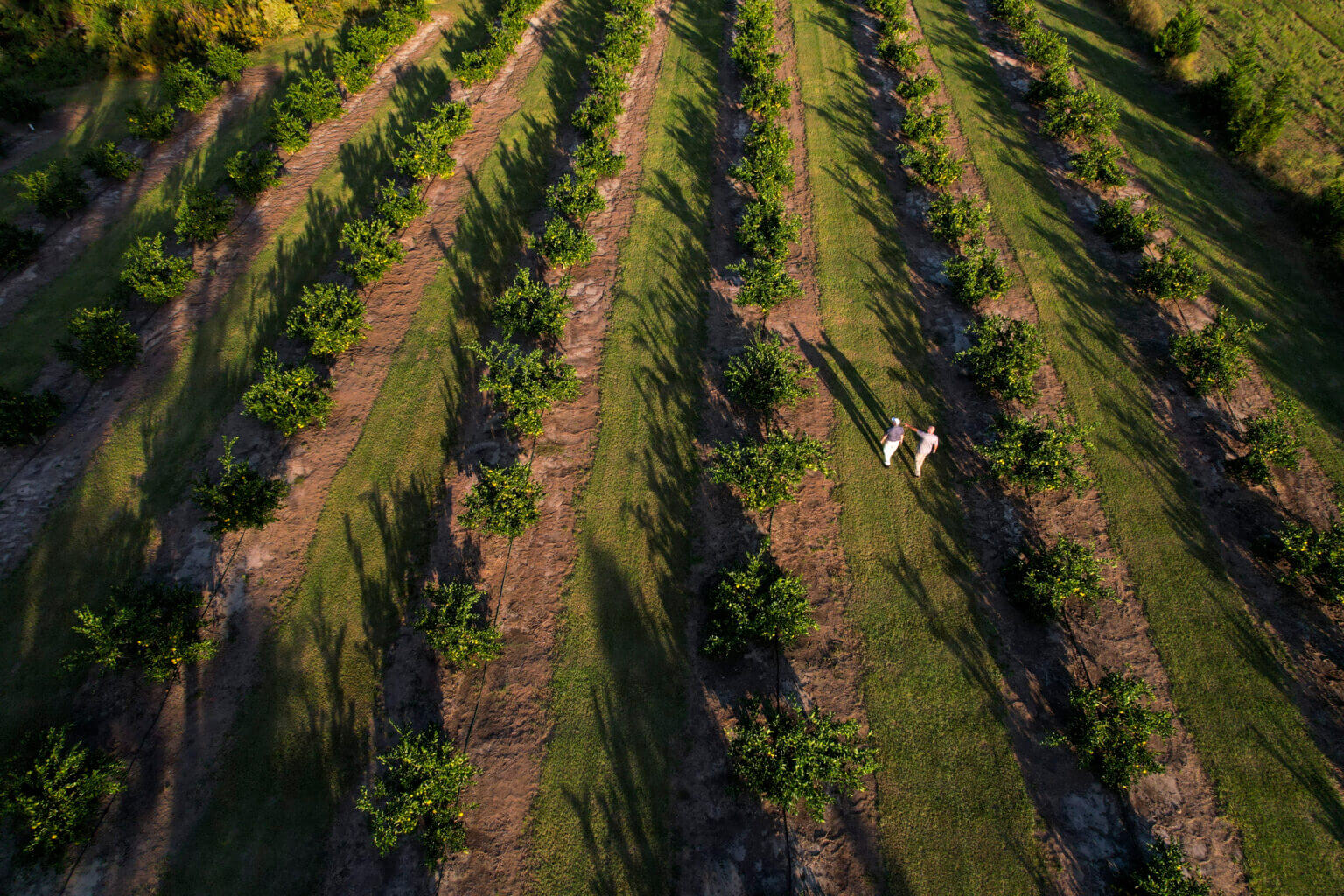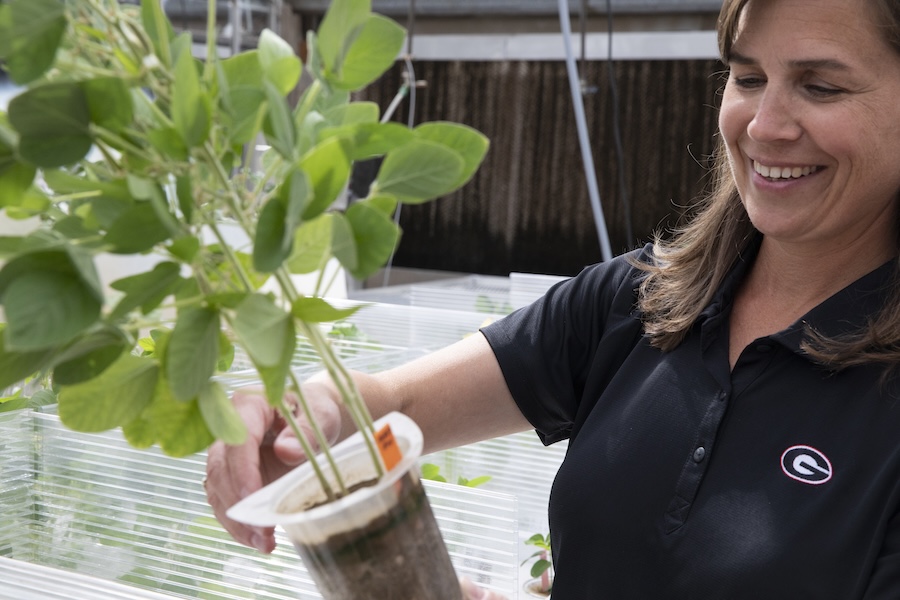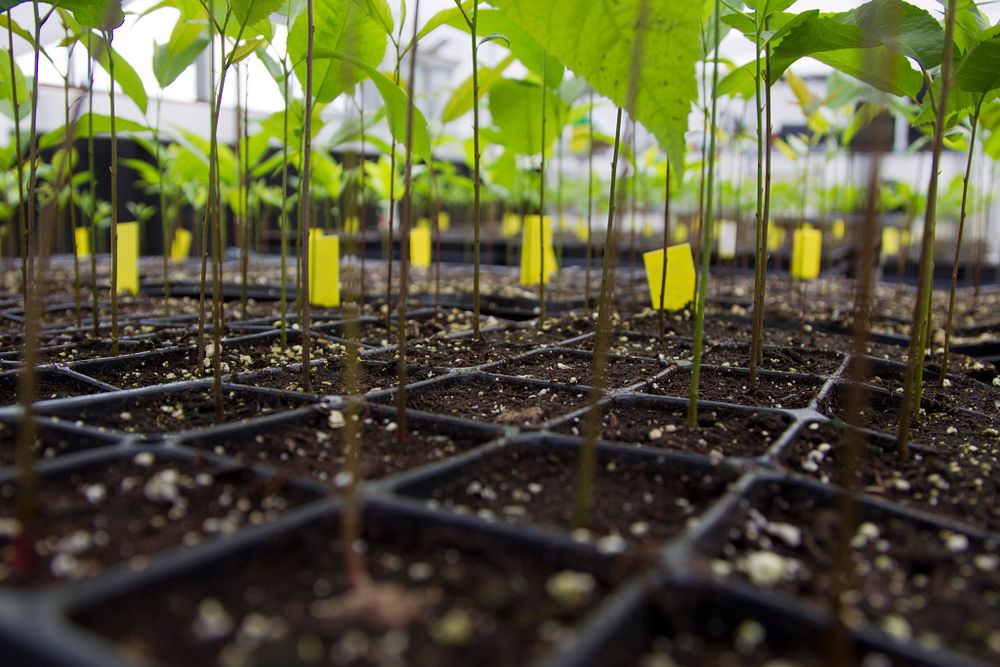Jonathan Oliver’s study of blueberries and his homegrown knowledge of citrus makes the Palatka, Florida, native a valuable addition to the University of Georgia College of Agricultural and Environmental Sciences.
Stationed on the UGA Tifton campus, Oliver recently joined the college as a fruit pathologist specializing in blueberries, blackberries, citrus, pomegranates, olives and mayhaws.
“Georgia has a tremendous array of commodities just in fruits. That’s one of the reasons I am excited about working here,” Oliver said. “We have established fruits, like blueberries, and up-and-coming fruits, like citrus, that should only continue to grow in popularity. Hopefully, I can help our farmers continue to be as successful as they have been.”
Georgia is a national leader in blueberry production. Georgia blueberries were valued at more than $255.7 million in 2015, according to the UGA Center for Agribusiness and Economic Development’s farm gate value report.
Oliver previously worked at Auburn University, where he studied Xylella fastidiosa, the cause of bacterial leaf scorch in blueberries. He coordinated some of his research with UGA Cooperative Extension county agents in Georgia and hopes to continue those studies in his new role at UGA.
“I want to find out whether there is any resistance to this disease in blueberry cultivars. I’m interested in looking at blueberries’ tolerance to Xylella fastidiosa and the interaction between that pathogen and blueberry itself,” Oliver said.
Blueberry expansion in Georgia over the last couple of decades led to the discovery of new pathogens, Oliver said. He hopes to uncover better management methods for these pathogens.
In his new role at UGA, Oliver will also help the citrus industry continue to expand in Georgia. More than 150 acres of satsuma oranges — potentially more than 21,750 new citrus trees — have been planted in south Georgia in the last four years, according to Jacob Price, UGA Extension Agriculture and Natural Resources agent in Lowndes County.
Oliver is researching citrus greening, a bacterial disease that has wiped out a substantial number of trees in Florida. The disease, spread by an insect that has been found in south Georgia, is the largest threat to citrus production worldwide, according to Oliver. While citrus greening has only been found in Georgia’s coastal counties, Oliver wants to be proactive in keeping Extension county agents updated on its progression.
“Citrus greening in Georgia’s citrus is a question. If it’s likely to be a problem, we should know before people get too invested in growing more citrus in Georgia,” he said.
Oliver is also working to ensure that Georgia farmers plant disease-free citrus seedlings.
“It’s important that all commodities, especially perennial fruit crops, start with clean material. I’m interested in different ways that we can screen seedlings and the different treatments that growers might apply when they initially plant their crop,” he said.
Oliver is conducting research at the UGA Tifton campus and at neighboring research stations in Alapaha, Georgia, and Alma, Georgia.
Oliver earned undergraduate degrees in plant pathology and microbiology and cell science from the University of Florida and a doctoral degree in plant pathology from Cornell University.








